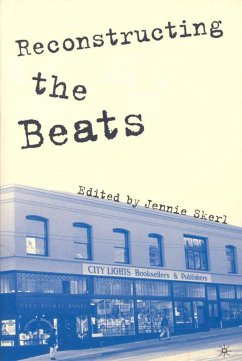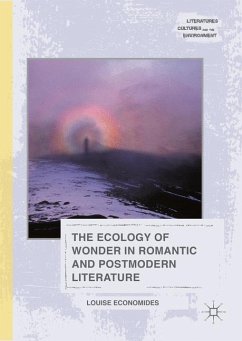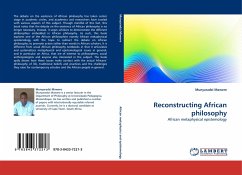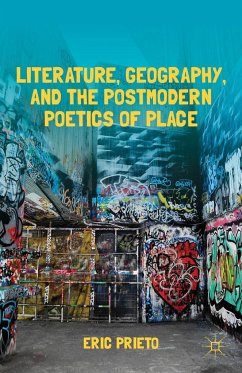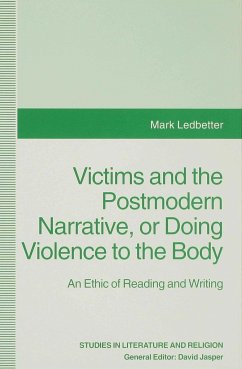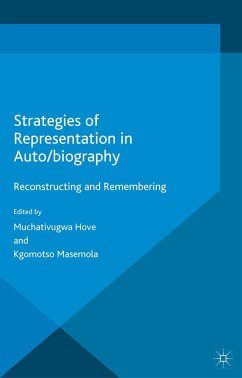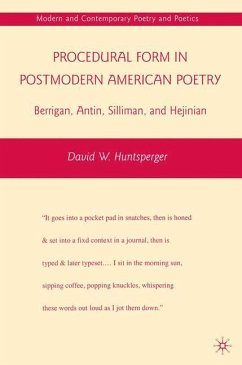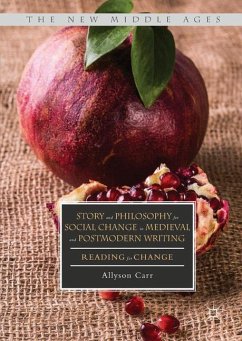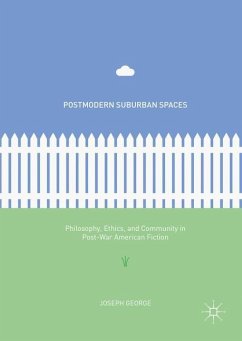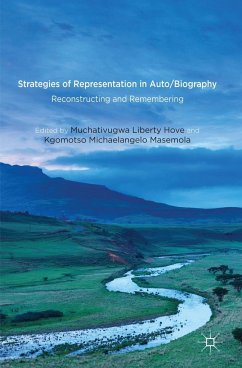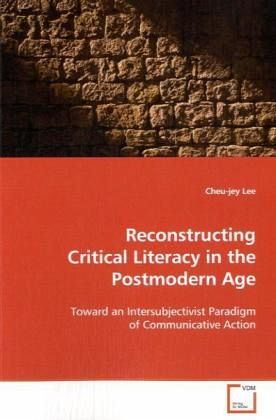
Reconstructing Critical Literacy in the Postmodern Age
Toward an Intersubjectivist Paradigm of Communicative Action
Versandkostenfrei!
Versandfertig in 6-10 Tagen
32,99 €
inkl. MwSt.

PAYBACK Punkte
16 °P sammeln!
The postmodern force resembles a violent gushingtorrent that washes away almost every man-madeartifact of modernity. Literacy education andresearch, without exception, have been profoundlyinfluenced by this force. The project of criticalliteracy seems revolutionary and ambitious. It claimsto be critical, empowering, and emancipatory. Hence,the central concern of this book is: can criticalliteracy within the postmodern framework justify itsclaim? Are there any criticisms of postmodernism?What is lacking in it? Is there an alternative? Howdoes this alternative paradigm address and overcomethe li...
The postmodern force resembles a violent gushing
torrent that washes away almost every man-made
artifact of modernity. Literacy education and
research, without exception, have been profoundly
influenced by this force. The project of critical
literacy seems revolutionary and ambitious. It claims
to be critical, empowering, and emancipatory. Hence,
the central concern of this book is: can critical
literacy within the postmodern framework justify its
claim? Are there any criticisms of postmodernism?
What is lacking in it? Is there an alternative? How
does this alternative paradigm address and overcome
the limitations of postmodernism? How can critical
literacy be critical, empowering, and emancipatory
within the alternative paradigm? And what does this
alternative paradigm imply in relation to literacy
pedagogy? These and other questions are explored in
this book. The analysis should be accessible and
helpful to those who are interested in the
theoretical grounding for critical literacy. Literacy
educators will also find the discussion of
pedagogical implications useful in informing their
practices.
torrent that washes away almost every man-made
artifact of modernity. Literacy education and
research, without exception, have been profoundly
influenced by this force. The project of critical
literacy seems revolutionary and ambitious. It claims
to be critical, empowering, and emancipatory. Hence,
the central concern of this book is: can critical
literacy within the postmodern framework justify its
claim? Are there any criticisms of postmodernism?
What is lacking in it? Is there an alternative? How
does this alternative paradigm address and overcome
the limitations of postmodernism? How can critical
literacy be critical, empowering, and emancipatory
within the alternative paradigm? And what does this
alternative paradigm imply in relation to literacy
pedagogy? These and other questions are explored in
this book. The analysis should be accessible and
helpful to those who are interested in the
theoretical grounding for critical literacy. Literacy
educators will also find the discussion of
pedagogical implications useful in informing their
practices.



